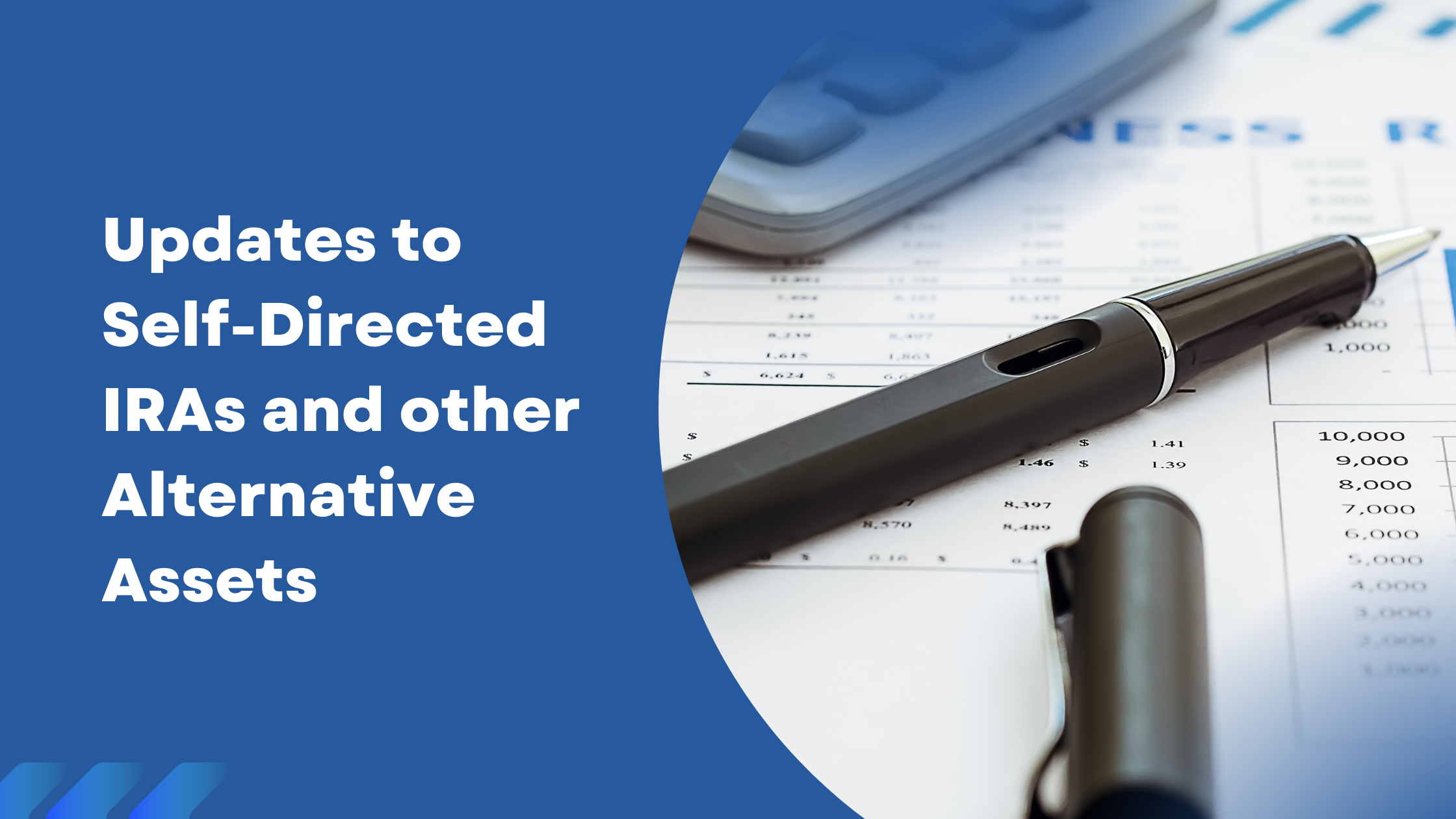Updates to Self-Directed IRAs and other Alternative Assets
VerifyInvestor.com
The Build Back Better Act was all the talk on the hill last year, but now, the package has seemed to stall in the Senate, and talk of it is almost non-existent. However, hopeful Democrats still plan to pass a scaled-back version of the bill, so it’s important to know what it entails and how it could affect you, particularly if you invest in alternative assets via a self-directed IRA. While the bill is massive, we’ll focus primarily on the aspects of it that relate to changes to regulations on Individual Retirement Accounts (IRAs).
Background on The Build Back Better Act
In its original form, the legislation contained many provisions that would severely impact the types of investments available to those with self-directed IRAs.
One of those provisions prohibited IRAs from investing in securities where the owner must be an accredited investor. This would have limited access to private markets, including private equity and venture capital investments in startups and other companies. Another provision prohibited IRAs from holding more than 10% of a non-public security, or an officer, director, etc., of a company owning those company’s securities in the IRA.
Before the bill passed through the House of Representatives, both of these provisions and others were removed or altered.
The cut-back legislation contains altered provisions, including an effective date of 2029 for a $10 million cap on IRA/defined contribution plan balances. To comply with the cap, a beneficiary of a plan account can request a distribution from the plan, just like a participant. Notably, it also contains a provision that makes Roth conversions off-limits for high-income individuals starting in 2032, and makes after-tax Roth conversions off-limits for everyone in 2022. The bill also prohibits IRAs from investing in DISC and FSC entities.
These are just a few of the many provisions in the Build Back Better Act that affect IRA-holders. However, for the bill to move forward, it will undoubtedly have to undergo further change, which means these provisions could once again be added back in, altered, or dropped.
How Self-Directed IRAs Could Be Impacted
A self-directed IRA allows an investor to hold alternative assets in a retirement account, beyond just stocks and bonds. Should this change, it would impact the many Americans who hold this type of account and limit the flexibility of knowledgeable investors.
If you hold investments in your IRA that require you to verify accredited investor status, your investments would be in jeopardy and you would lose the ability to carry a broader selection of assets. Additionally, the companies that require verification of investment would lose potential investors who invest via a self-directed IRA.
If you are interested in investing in alternative assets and private markets through your self-directed IRA, take the effort to become an accredited investor and receive your accredited investor letter. Given the halt on the Build Back Better Act and the expected changes, the freedom to invest in this way is still yours.
